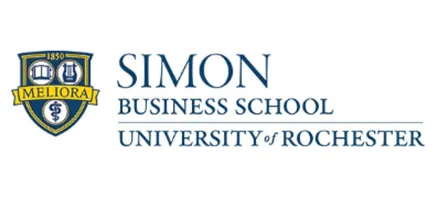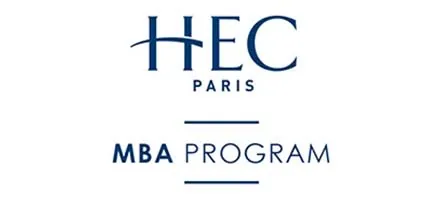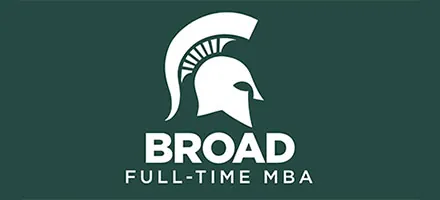
It’s lonely at the top.
If you already lead or aspire to lead a business school, you either know or quickly will discover the truth in that clichéd phrase.
Ken Kring, Jim Ellis and Dave Ikenberry know it well. Kring, a search consultant who leads the global education practice for Korn Ferry, has helped to recruit nearly 50 business schools including three at Wharton alone. Ellis successfully led USC’s Marshall School of Business from 2007 to 2019, and Ikenberry was dean of the Leeds School of Business at the University of Colorado in Boulder for five and one-half years.
“These jobs are hard,” confides Kring. “They are lonely; shit happens. People often ask, ‘Who could I talk to? Who can I trust?’ The three of us started comparing notes. I was explaining the sort of kabuki that happens to get a new dean selected and where the disconnect is between selection and reality. There is a kind of aloneness that we wanted to get under the hood on.”
DEANS COUNSEL: ‘I WISH SOMEONE HAD DONE THIS FOR ME’
The result of those conversations which started in a coffee shop in Philadelphia toward the end of last year is a unique podcast series called Deans Counsel. The goal: to interview current and former deans on core aspects of their jobs to help others in similar positions or those who one day might want to assume a deanship.
“The highest ideal here is to share,” says Kring, “the good, the bad and the ugly of their stories. That sort of candor and openness is what we are aiming for.”
And, of course, the three hosts bring lots of experience to the game. “Having been through the battles, we know what it is like,” says Ellis. “In academia, people share everything except their strategy relative to rankings. Other than that, it’s an open book. That is what has been great about the podcast. I wish someone had done this for me, either when I was a brand new dean or a sitting dean after five or six years. That can be the time when you need to get recharged a bit and need a little boost.”
TEN EPISODES THAT GRAPPLE WITH CHALLENGES & OPPORTUNITIES FOR B-SCHOOL DEANS
So far, ten episodes have gone live with another ten in the can, each offering insights and perspectives on everything from business school branding to building corporate partnerships. There’s Peter Rodriguez, dean of Rice University’s Jones School, on launching large-scale programs; former Texas A&M Mays School Dean Eli Jones on effectively leading strategic planning; former Indiana Kelley Dean “Idie” Kesner on branding, former ASU Carey Dean Amy Hillman on interdisciplinary programs for business schools, and Gene Anderson from the University of Pittsburg’s Katz School on transitioning into a new deanship.
All together, the sessions form the core of what could very well be a high-level course in leading a business school. Plus, it is taught by people who have been there and done it. The interviewed deans speak in an often unguarded way about the things that worked and what didn’t. Few will listen to the podcast series without coming away with a number of innovative ideas that could just as easily be launched at their own schools.
FROM BUILDING A STATE-OF-THE-ART SCHOOL TO COLLABORATING WITH OTHER UNIVERSITY SCHOOLS & DEPARTMENTS
The most recent episode of Deans Counsel features Foster School of Business Dean Frank Hodge begins with the familiar jazzy intro. For the next 41 minutes, Hodge addresses what it takes to construct a state-of-the-art business school. Over the past 12 years, the business school at the University of Washington has put up three new buildings at a cost of more than $300,000 with a total of 280,000 square feet. He quickly gets into the weeds which is exactly what any other dean would want, from how to fund big projects, how to choose an architect, creating a building as a living organism, and then building a true community inside. Ellis and Ikenberry move the conversation along, not shying away from asking more challenging questions.
Building and executing a strategic plan for a business school is the subject of a podcast with Eli Jones, who has been dean of three business schools at Texas A&M, the University of Arkansas, and Louisiana State University. Jones goes into detail on how his own thinking about strategic planning evolved from one job to another so that his third time around led to a more engaging and sticky process with a lasting vision and mission.
A former sales leader at PepsiCo, Nabisco and Quaker Oats, Jones walked into his first deanship at LSU’s Ourso College of Business with a focus on five initiatives. “I came up with those five things based on my research on the school,” he says. “To be candid, we got about two, maybe three of those five things done. The third time it was all grassroots. I said, ‘I want everybody to feel heard.’ A steering committee of eight was organized and it held town halls and workshops asking all stakeholders where would we like to go from here? “We had a couple hundred pages of input. The steering committee sat and sorted through all of this great input…and then went back to the faculty and staff to report on what we heard. That vision is outlasting me, and I stepped back a year and a half ago.”
Amy Hillman, who was dean of ASU’s Carey School for nearly eight years until 2020, talks about the creation of interdisciplinary programs and degrees with other ASU schools and departments. Among the most innovative launches under her watch was a bachelor of arts in business that requires students to complete 18 hours of upper-level courses at another ASU school, from Law or Fine Arts to Chinese and Asian Studies and Sustainability. She smartly used feedback from parents to promote the idea on campus. Today, some 10,000 undergraduate students now get bachelor’s of arts degrees.
Hillman makes it sound easier than it probably would be for many deans. “You go to a peer,” she says. “You come up with an interesting idea. You make the pitch to your Provost. It has to be (a commitment to) experimentation. ‘Let’s see what we can do, and if we can get the enrollment. And If it doesn’t work out, we are going to close it.’”
FOR B-SCHOOL DEANS, ‘THE CHALLENGES ARE IMMENSE AND VERY BROAD’
All power to her, she not only go it done; Hillman also enhanced the business school’s reputation on campus.”The other colleges and schools look at the business school and see fancy buildings and programs but they don’t see us necessarily always being the best partner,” Hillman acknowledges. “Everyone is used to partnering with liberal arts or general education. But this is a real reputation builder and social capital builder for the business school. Our other campus partners view us very differently because we have been able to increase their enrollments. This allows them to hire faculty as well.”
What adds even more value is the intelligent debriefing of the interview by Ellis and Ikenberry who distill the takeaways for listeners. Ellis points out that “speaking to the parents of the students who are more pragmatic about how their children are going to get jobs when they get out of school” was a brilliant stroke. “Being able to say the business school is a partner with whatever school your son or daughter wants to choose and we are going to help you became a great selling point.”
In the introductory podcast, Ikenberry best frames what the threesome is trying to accomplish with their podcast series. “At heart, we are all educators,” he says. “We are in the business of trying to support people. In this role, the challenges are immense and very broad. The span of issues inside and outside the organization and veritably up into the campus are all big challenges and typically getting worse over time. In many cases, it is an unforgiving environment. We have benefitted from talking to other deans. At a very high level, many of our challenges are common. Each school has its own idiosyncracies but some of the issues we face are at a higher altitude and are common.”
Executive Summary:
Is the MBA a luxury good that is being diminished by the proliferation of online versions? That’s what former Graduate Management Admission Council CEO Sangeet Chowfla believes in his essay Why Students Go To Business School & How They Make Their Choices.
What really matters in recruiting students: location & alumni success. Chowfla Explains why business school messaging has to change from news releases about professors who win an award to alumni success stories. “Simply put, it’s about benefits to our students, not our own achievements,” writes Chowfla in his essay A Decade Of Graduate Management Education: ‘I Love You, Your Perfect, Now Change’
Diversity & The Future Of Business Education: UC-San Diego Dean Lisa Ordonez on one of the big topics of the day.
On The Enduring Value Of The MBA: It may be a mature product in higher education but the value of the degree remains unchallenged. Rochester Simon Dean Sevin Yeltekin On The MBA’s Value And More
B-School Dean Predictions For This Uncertain Year: We asked prominent deans from all over the world to gaze into their crystal balls and tell us what they expect to happen in 2023 in business education. The Crystal Ball: Business School Leaders Offer Predictions–And More Than A dAsh Of Hope–for 2023
With COVID More Or Less Over, A New Normal Takes Place On Campus. ‘A Tremendous Opportunity To Make Positive Change:’ Business School Deans Share Their 2023 Resolutions
On The Move:
Francisco Veloso, dean of Imperial College Business in London, will become dean of INSEAD on Sept. 1.
Ash Soni, interim dean at Indiana University’s Kelley School of Business, named to a two-year deanship after a full search.
Thomas J. Steenburgh, a senior associate dean at UVA’s Darden School of Business who leads Darden’s residential MBA program, will be the next dean of Vanderbilt’s Owen Graduate School of Management starting this June.
Michael Mazzeo, a professor at the Kellogg School of Management for nearly a quarter of a century at Kellogg, is taking over the deanship of Washington University’s Olin Business School on Jan. 1 of 2024.
Vijay Khatri, an executive associate dean at Indiana’s Kelley School of Business, has won a four-person shootout for the deanship the University of Colorado’s Leeds School of Business in Boulder effective July.
Balaji Rajagopalan, dean of the College of Business at Northern Illinois University since 2016, is moving over to the deanship at the Trulaske College of Business at the University of Missouri.
Wen Mao, a longtime professor of economics and vice dean at Villanova School of Business, will become dean of the school on Aug. 1.
David De Cremer, provost chair and professor at National University of Singapore, will become the new dean of Northeastern University’s D’Amore-McKim School of Business on July 1.









